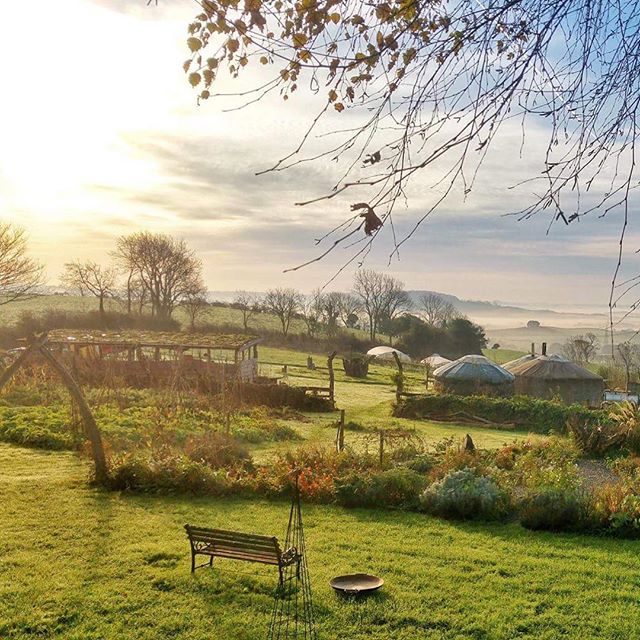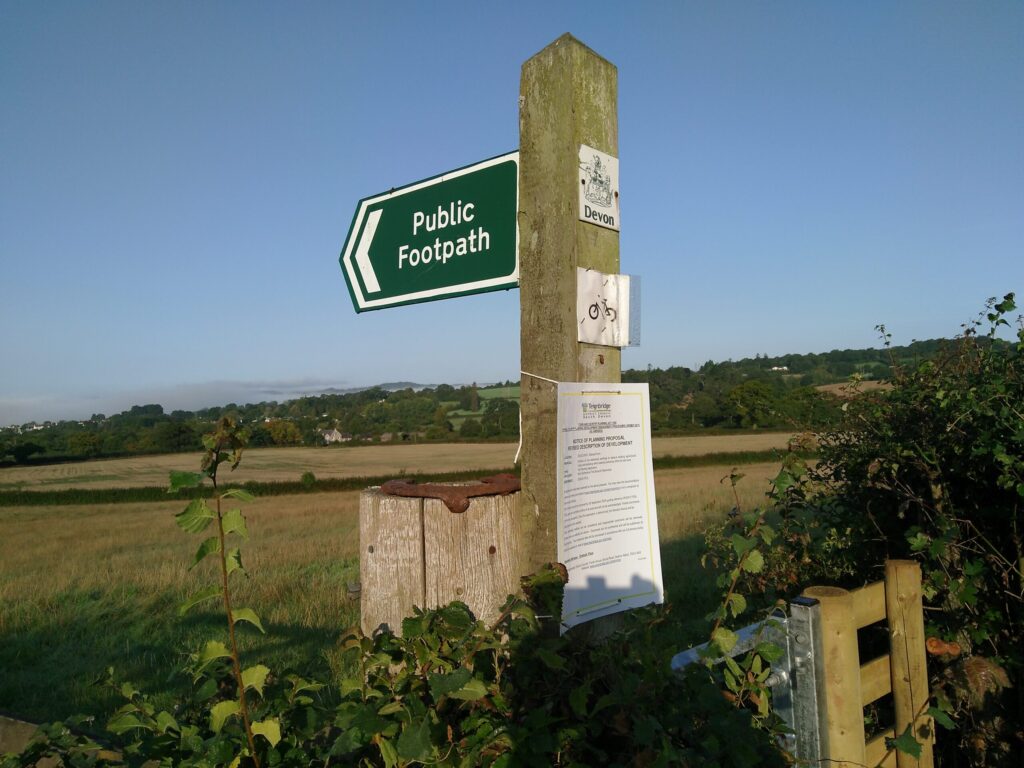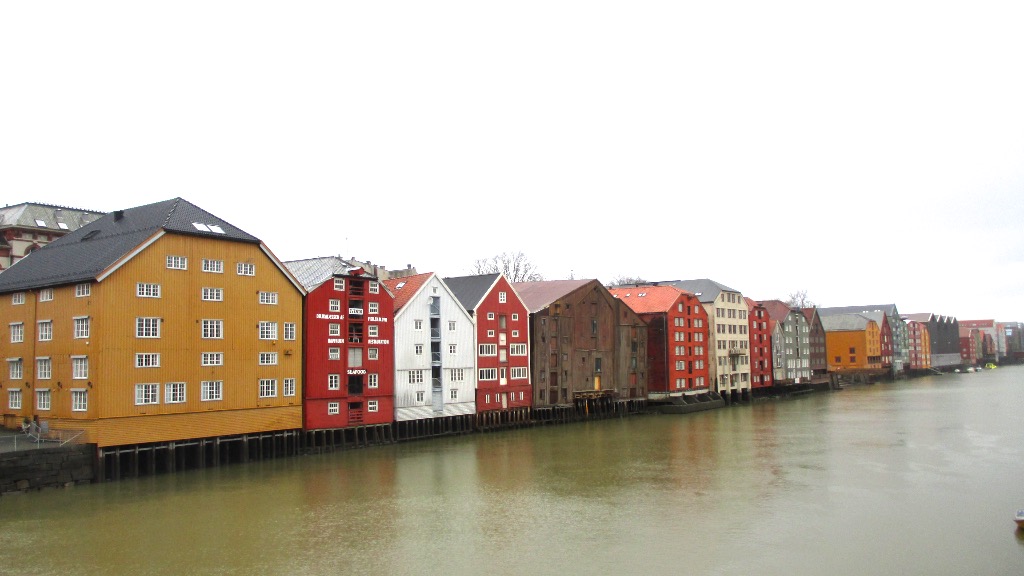


We need a different way of doing things. We need an economy that makes things fairer and more equal. We need economic systems that flourish within our environmental limits and mechanisms that prioritise sustainability. We need radical ideas. And, most importantly, we need ways to turn those ideas into a reality.
Stewardship Economy explores how reimagining our relationship with land and the natural environment could address some of the critical challenges facing our local and global communities. It proposes a new way of viewing rights to land and other natural resources, something its author, Julian Pratt, calls stewardship. Under stewardship, similar to the current system, people have exclusive right to use the land. But in return for this right they have a duty of care for the land. They also have a duty to compensate others in the community who are excluded from using the land. This compensation is paid as a stewardship fee. A steward also has full ownership, in the traditional sense, of any buildings on the land.
The system is based on the principle that everyone is entitled to an equal share of the wealth that is created by natural resources.
The stewardship fee (Land Value Tax) is gathered by governments and used in a combination of three ways (i) in place of conventional taxes, (ii) to fund public services and (iii) redistributed through the provision of a universal income.
The stewardship book series sets out the moral and economic arguments for stewardship as well as demonstrating how it would work in practice and how transition to a full stewardship economy could happen.
Julian Pratt researched the history and the economics of the ideas set out here over many years. As a young doctor, he worked in Africa where he was deeply affected by the disease and preventable deaths he was witnessing. He realised that unequal distribution of agricultural land and the related poverty were key contributory factors. Looking for solutions, he became interested in 18th and 19th century radical thinkers such as Thomas Spence, Thomas Paine and Henry George and saw how some of what they proposed could address economic inequality.
Through this enquiry Julian became committed to a radical rethink of the economic system and saw a form of land tax as a fundamental part of this. Julian first released Stewardship Economy in 2011 and he continued to develop the ideas until his death in 2018. Over the last few years authors and commentators from different perspectives have proposed various aspects of what Julian brings together in a unifying whole and his ideas are more relevant than ever for the global challenges of the 2020s.
How would it affect me?
How transition to a stewardship economy would affect individuals depends critically on the path that is chosen. Its implications for a wide range of families and the distributional impact on the whole population would need to be extensively modelled so that the chosen path is one that does no harm to the poorest.
But to get a sense of what an established stewardship economy might be like, here’s a thought experiment. Suppose stewardship is introduced overnight into the UK, leaving the current tax-benefit system in place and government spending unchanged:
Level of the stewardship fee: As a very rough approximation, take the value of the home that you own; divide this by 20 to give an approximate annual market rent of the whole property and divide this by three to give you an approximate annual market rent of the land. [Market rent of land is the amount of rent that would be expected in comparison with similar pieces of land in the same area]. So, if you own a home currently valued at £300,000 your annual stewardship fee would be, very approximately, £5,000 – less in areas of low land value where land makes up a smaller proportion of the value, and more in areas of high land value. It would be zero if you were renting
Level of universal income: Using the method employed in Stewardship Economy, a rough estimate of stewardship fees in the UK in 2019 would be £280 billion per year (approximately 12.5% of GDP). Distributed on an equal per capita basis this would provide about £80 per week (approximately £4,150 per person per year); or, alternatively, it could provide £80 per week for children, £60 per week for adults of working age and £140 per week for the over-65. That would be in addition to existing benefits.
Reasonable criticism
Orthodox economists have reasonable and serious criticisms of the impact of Land Value Taxes on the land market and land use, particularly about the erosion of government tax receipts (tax base), destruction of the land market and the reduction of profitability. These criticisms are addressed by the mechanism of the new land market explained in the Stewardship Economy books.
Land Value Taxation is used in several countries around the world, albeit at no more than 20 per cent of market rent. The UK government has recently considered using land value gains to finance transport infrastructure projects and in 2017 the Scottish Government asked the Scottish Land Commission to look at the potential for introducing some form of land value based tax in Scotland.. The Labour party and the Liberal Democrats have groups considering the issue and Land Value Taxation has long been Green Party policy. See Related Initiatives.
Taxing land – a very brief history
From the time of the earliest written records, in Mesopotamia public revenue was raised from lands that were designated to support religious and state institutions. But as palace rule weakened around 2300 BCE the royal and public landholdings passed into private ownership. People have a powerful temptation to, and a long history of, capturing the rents from land and natural resources for their own private benefit.
The British, unable and unwilling to challenge land ownership at home, understood the advantages of raising state revenue from land rather than from conventional taxes and put this into place in many of their colonies. Land Value Taxation has been applied in Australia, New Zealand, South Africa and inthe state of Pennsylvania. Other countries that have made successful use of relatively low levels of Land Value Taxes include Denmark and the Baltic States.
In Singapore and Hong Kong the state does not use Land Value Taxation, but it does retain the freehold of much of the land and derives a great deal of its revenue from leases, providing the economic basis for their vibrant low-tax economies.
In the UK, a range of taxes has been applied to land including the Council Tax, Non-Domestic (Business) Rates, Development Land Tax and so on. None of these has taken the form of a tax on the market rent of land and all have had quite predictable adverse economic impacts.
Stewardship Economy proposes charges amounting to 100 per cent of the market rent of land. These are untried but the auction of licences to use the radio spectrum provides an example of the application to the environment of a charge equal to 100 per cent of the market rent.
Will the rich get all the land?
The rich will be in a position to monopolise the best land in a stewardship economy, just as they are in our current ownership economy. The difference is that they will pay for the privilege and everybody else benefits from the fees they pay. That certainly seems fairer than the situation in an ownership economy (explained in more detail in Julian’s Stewardship Economy book) where the landowners monopolise not only the use of the land but also benefit from its market rent and any increase in its market value.
Isn’t is just communism?
Stewardship certainly doesn’t look like capitalism as we know it, but it isn’t communism either. Stewardship can support socialism, just as it can support libertarianism, but not the collective ownership of property that characterises communism. Land is held in trust in a stewardship economy but each plot is private property, because each steward can make use of the land as they wish without reference to the will of the collective (apart from the usual planning regulations).
Stewardship is closely related to Henry George’s Single Tax and Karl Marx could see that this is not communism – he described Henry George as ‘the capitalists’ last ditch’.
Won’t it destroy the land market?
Land Value Taxes have been successfully assessed and collected in ownership economies at up to 25 per cent of market rent, calculated as a proportion of either the market value of the land or its market rent.
When the stewardship fee is 100% of market rent of land, the fee would equal all the rent it would be possible receive for land (not including buildings). Therefore the market value of land for sale and purchase would become zero.
The land market as we know it, in the form of direct purchases by a buyer from a seller, would not exist in a stewardship economy. It is replaced by a new land market, in which a Land Stewardship Trust transfers properties at auction. This is more open, transparent and efficient than property markets in ownership economies.
What happens if the land value is wrong?
This is a serious question that advocates of Land Value Taxation have sometimes failed adequately to address. It applies particularly to proposals that would set the stewardship fee for a plot of land on the basis of the opinion of a state appointed valuer.
If the fee were to be set higher than the market rent then it would not be profitable to use the site. Setting stewardship fees too high would damage the economy, and this could be a real danger during the downswing of an economic cycle when market rents are falling. If the level of fees is set too low the revenue from stewardship fees would be reduced and there is also a risk that purchasers would offer illegal payments to secure stewardship of a site.
It is important that the stewardship fee is determined, wherever possible, by the market – not by a valuer – and that it is flexible, able to fall or rise depending on the state of the general economy or on local factors.
Annual re-valuation using comparables that have been exposed to the market can never be perfect, but neither is an ownership economy, which has its own ways of distorting land use. And the steward can always appeal to valuation by the market.
Videos
Summary of stewardship proposals 2018
Stewardship at the Totnes Land Conference in 2015
Adventures in New Economics – Alternatives to Owning the Earth. Dartington Trust 2014 Julian speaking from 13’54”